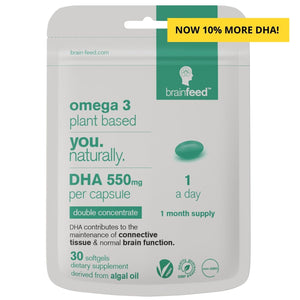How to keep your brain healthy as you age? Cognitive super agers hold answers
filter
Growing older is inevitable. Staying smart in old age is achievable. The closest thing to a time machine is a brain that stays young even when you are 80. In fact, there is an elite group of 80 year olds whose brain function is similar to those decades younger. These older adults are called superagers due to their superior brain abilities. Studying superagers can open doors to understanding ways to protect and nourish your brain to maximise its potential in old age. The good news is, you have everything you need to become one of them.
Who qualifies as a superager?
Northwestern University, known for its research in ageing, coined the term “Superaging” based on studies on older adults with exceptional mental capabilities for their age. Superagers have the following characteristics [1 Trusted Source 2019 - Alzheimer's & Dementia Research evaluation Don't forget—Age is a relevant variable in defining SuperAgers ] :
- Being at least 80 years of age
- Having memory scores equal to those in their 50s or younger
- Having other cognitive skills that are normal for their age
What happens to your brain as you age?
It is normal to expect physical and psychological age related brain changes as you grow older. After the age of 40, brain size starts shrinking at the rate of 5% per decade [2 Trusted Source 2006 - Postgraduate Medical Journal Research evaluation Ageing and the brain: This article is part of a series on ageing edited by Professor Chris Bulpitt ] . Damage of brain cells and thinning of brain cell connections contribute to brain size reduction. This physical transformation contributes to aging brain symptoms. There are many evidence-based ways to preserve brain structure through lifestyle modifications.
The area of higher thinking skills that allows us to understand complex concepts and make high-level decisions, is the area that is most affected. This is one reason why older adults may have trouble remembering events or tasks. Your brain is capable of making multiple connections in preparation for certain losses.
Brain chemicals that help you perform important functions also reduce with age. In certain cases of dementia, up to 90% of the cells producing the learning and memory brain chemical, acetylcholine are lost [3 Trusted Source 2015 - Acta Neuropathologica Systematic and meta-analysis Nucleus basalis of Meynert revisited: anatomy, history and differential involvement in Alzheimer’s and Parkinson’s disease ] .
Blood flow to the brain also decreases with age [4 Trusted Source 2018 - Journal of Neurochemistry Systematic and meta-analysis Cerebral blood flow in normal aging adults: cardiovascular determinants, clinical implications, and aerobic fitness ] . Blood carries oxygen and important nutrients to keep the brain functioning at its best. Good nutrition and exercise are ways to bump up the blood flow to the brain.
Superagers have super brains: What is special about them?
Superagers have stronger brains. Brain scans comparing brains of superagers with cognitively normal older and younger people found that superagers have more robust brain areas [5 Trusted Source 2020 - National Institute on Aging 3rd-party source Cognitive super agers defy typical age-related decline in brainpower ] . The brain area responsible for integrating memory, decision making and emotions was thicker in superagers compared to other participants. Thicker areas=more resilience=withstand long term damage.
Brain shrinkage plays a major role in cognitive decline. Superagers have brains that shrink at a slower rate. In a study where brain volume was measured for 18 months, it was found that superagers’ brains shrink at less than half the rate (1%) compared to normal adults (2.2%). The longer your brain stays in top shape, the better it can function [5 Trusted Source 2020 - National Institute on Aging 3rd-party source Cognitive super agers defy typical age-related decline in brainpower ] .
Another study found that superagers had a higher number of brain cells that are involved in advanced social behaviour [5 Trusted Source 2020 - National Institute on Aging 3rd-party source Cognitive super agers defy typical age-related decline in brainpower ] . Social networking benefits the brain by promoting development of different skillsets and developing meaningful relationships.
How to keep your brain sharp and become a superager?
Superagers’ brains can stand the test of time. Their brains are capable of functioning well despite the age-related changes. How do their brains perform as well as those of younger people? The answer lies in the way they lead their lives throughout adulthood. Superagers have mastered the science of using good nutrition, mental stimulation and socialising for long term brain benefits:
-
Eat right to keep your brain young
The Mediterranean diet is one of the best researched diets for health benefits. The diet recommends intake of whole grains, beans and legumes, fruits and vegetables, fish and olive oil and limits intake of red meat and sweets.
Its advanced form, designed specifically for brain health is the MIND diet (Mediterranean-DASH Diet Intervention for Neurodegenerative Delay). This diet dives into specific recommendations for brain benefits. The intake of green leafy vegetables, nuts, whole grains, berries, beans, fish, poultry and olive oil are encouraged on a regular basis while butter, cheese, red meat, fried foods and sweets are limited. Read more about it here.
This diet protects and promotes brain health due to the variety of nutrients it provides.
DHA, found in fish and algae, is a protective brain fat that increases the size of memory and learning brain areas [6 Trusted Source 2013 - Cerebral Cortex Human study Long-Chain Omega-3 Fatty Acids Improve Brain Function and Structure in Older Adults ] . It also produces the production of brain compounds that help speed up message transfer. brain feed developed a sustainable and plant-based double-concentrated omega 3 that boasts an impressive 500 mg of DHA in one vegan capsule. Get 15% off your first purchase with code ‘NEW15’.
Flavonoids are protective compounds found in berries, fruits and vegetables. These help increase blood flow to the brain for up to 2 hrs after consumption [7 Trusted Source 2009 - Genes & Nutrition 3rd-party resource Flavonoids and brain health: multiple effects underpinned by common mechanisms ] . Flavonoids are also known to promote thicker brain cells, especially in the memory area [8 Trusted Source 2019 - Frontiers in Aging Neuroscience Research evaluation Flavonoids as Prospective Neuroprotectants and Their Therapeutic Propensity in Aging Associated Neurological Disorders ] .
B-vitamins like Vitamin B6 and folate, found in lentils and vegetables activate many chemical reactions in the brain. This includes DNA repair, protecting learning and memory areas of the brain and production of brain chemicals [9 Trusted Source 2016 - Nutrients Research evaluation B Vitamins and the Brain: Mechanisms, Dose and Efficacy—A Review ] .
Providing your brain a regular supply of these nutrients can bump up your chances of becoming a superager at 80.
-
Increase mental activity for a fitter brain
Your brain is an active organ and needs healthy stimulation on a regular basis. Activities like reading, dancing, crafting and other hobbies are associated with better ageing due to 40% lower risk of serious memory loss [10 Trusted Source 2022 - Epidemiology and Psychiatric Sciences Research evaluation The role of cognitive and social leisure activities in dementia risk: assessing longitudinal associations of modifiable and non-modifiable risk factors ] . Brainy hobbies promote growth of new brain cells and skillset. With older age, the more brain networks you have, the better your brain functions later in life. Do you enjoy both singing and crocheting and find it hard to pick one? Do both! The more activities you do, the better your brain ages. Practising 6 leisure activities like knitting, walking, socialising, reading, volunteering, playing board games, and taking classes was found to lower the risk of memory problems by almost 40% [11 Trusted Source 2001 - Neurology Human study Influence of leisure activity on the incidence of Alzheimer's disease ] .
If one of your hobbies includes being physically active, the news gets better for you. Physical activity increases blood flow to the brain, increases brain cells production and mental processing speed [12 Trusted Source 2021 - Behavioural Brain Research Systematic and meta-analysis Effects of physical activity on brain function and structure in older adults: A systematic review ] . Indulge in a mentally stimulating hobby today to become a superager in old age.
-
Build social connections for a robust brain
Superagers have a strong social network of family and friends who they can rely on and enjoy spending time with. Having such a connection helps protect brain health by decreasing the risk of memory loss by almost 30% [13 Trusted Source 2008 - American Journal of Public Health Human study Social Network, Cognitive Function, and Dementia Incidence Among Elderly Women ] . Higher levels of brain cells involved in social intelligence among superagers adds to the evidence that healthy socializing benefits brain health. Superagers also score very high on positive social interactions, thus reporting higher quality of life [14 Trusted Source 2017 - 3rd-party source National Institute on Aging "SuperAgers" show possible new link between social engagement, cognitive health ] . Having healthy social ties can lower loneliness and improve mental wellbeing, thus improving brain health.
Taking care of your brain is possible at any age. Start today by nourishing your brain with healthy nutrients, add in a dose of good social networks with a generous sprinkling of mentally stimulating activities. This makes for the perfect recipe to becoming a superager.
References
- Rogalski E. J. (2019). Don't forget-Age is a relevant variable in defining SuperAgers. Alzheimer's & dementia (Amsterdam, Netherlands), 11, 560–561. https://alz-journals.onlinelibrary.wiley.com/doi/10.1016/j.dadm.2019.05.008
- Peters R. (2006). Ageing and the brain. Postgraduate medical journal, 82(964), 84–88. https://academic.oup.com/pmj/article/82/964/84/7045152
- Liu, A.K.L. et al. (2015). Nucleus basalis of Meynert revisited: anatomy, history and differential involvement in Alzheimer’s and Parkinson’s disease. Acta Neuropathologica, [online] 129(4), pp.527–540. https://link.springer.com/article/10.1007/s00401-015-1392-5
- Tarumi, T., & Zhang, R. (2018). Cerebral blood flow in normal aging adults: cardiovascular determinants, clinical implications, and aerobic fitness. Journal of neurochemistry, 144(5), 595–608. https://onlinelibrary.wiley.com/doi/10.1111/jnc.14234
- National Institute on Aging. (2020). Cognitive Super Agers Defy Decline in Brainpower | NIA. https://www.nia.nih.gov/news/cognitive-super-agers-defy-typical-age-related-decline-brainpower
- Witte, A.V. et al. (2013). Long-Chain Omega-3 Fatty Acids Improve Brain Function and Structure in Older Adults. Cerebral Cortex, 24(11), pp.3059–3068. https://academic.oup.com/cercor/article-abstract/24/11/3059/304487?redirectedFrom=fulltext
- Spencer, J.P.E. (2009). Flavonoids and brain health: multiple effects underpinned by common mechanisms. Genes & Nutrition, [online] 4(4), pp.243–250. https://link.springer.com/article/10.1007/s12263-009-0136-3
- Ayaz, M. et al. (2019). Flavonoids as Prospective Neuroprotectants and Their Therapeutic Propensity in Aging Associated Neurological Disorders. Frontiers in Aging Neuroscience, 1 https://www.frontiersin.org/journals/aging-neuroscience/articles/10.3389/fnagi.2019.00155/full
- Kennedy, D. (2016). B Vitamins and the Brain: Mechanisms, Dose and Efficacy—A Review. Nutrients, [online] 8(2), p.68. https://www.mdpi.com/2072-6643/8/2/68
- Duffner, L.A. et al. (2022). The role of cognitive and social leisure activities in dementia risk: assessing longitudinal associations of modifiable and on-modifiable risk factors. Epidemiology and Psychiatric Sciences, 31. https://www.cambridge.org/core/journals/epidemiology-and-psychiatric-sciences/article/role-of-cognitive-and-social-leisure-activities-in-dementia-risk-assessing-longitudinal-associations-of-modifiable-and-nonmodifiable-risk-factors/C059879F6596219196105C2E61633323
- Scarmeas, N. et al. (2001). Influence of leisure activity on the incidence of Alzheimer’s Disease. Neurology, 57(12), pp.2236–2242. https://www.neurology.org/doi/10.1212/WNL.57.12.2236
- Domingos, C. et al. (2021). Effects of physical activity on brain function and structure in older adults: A systematic review. Behavioural Brain Research, [online] 402, p.113061. https://www.sciencedirect.com/science/article/pii/S0166432820307609?via%3Dihub
- Crooks, V. C. et al. (2008). Social network, cognitive function, and dementia incidence among elderly women. American journal of public health, 98(7), 1221–1227. https://ajph.aphapublications.org/doi/full/10.2105/AJPH.2007.115923
- National Institute on Aging. (2017). ‘SuperAgers’ show possible new link between social engagement, cognitive health. https://www.nia.nih.gov/news/superagers-show-possible-new-link-between-social-engagement-cognitive-health


 alertness
alertness
 cognition
cognition
 sleep
sleep
 wellbeing
wellbeing




Leave a comment
Open tab